Haedus II (*75) was 11 days after Hyadum II (*64);
|
Variants of taro brought by Oti from
the plantation of Teke: |
|
1 |
*69 |
ngeti uri. |
a Teke. a Oti. |
|
2 |
*70 |
ngeti tea. |
|
3 |
*71 |
he ngaatu. |
|
4 |
*72 |
he tuitui koviro. |
|
5 |
*73 |
he ketu anga mea. |
|
6 |
*74 |
he ketu takarua. |
|
7 |
HAEDUS II |
he teatea. |
|
8 |
*76 |
he ngu haha tea. |
|
9 |
*77 = *66 + *11 |
he mango. |
|
10 |
*78 |
he hahara rapanui |
|
1 |
*79 |
he ti. |
|
1 |
*80 |
he kape. |
and likewise was he mango located 11 days after Antares
at the Full Moon:
|
JULIAN EQUINOX (84) |
39 |
MAY 4 (124) |
140 |
SEPT EQUINOX
(*185) |
 |
 |
 |
|
ALDEBARAN |
40 |
ANTARES (181) |
|
'May 1 (121 = 84
+ 37) |
'June 10 (161) |
'Oct 29 (*222) |
|
"April 17 (107 =
84 + 23) |
"May 27 (147) |
Tangaroa Uri 15
(*208) |
|
182 days |
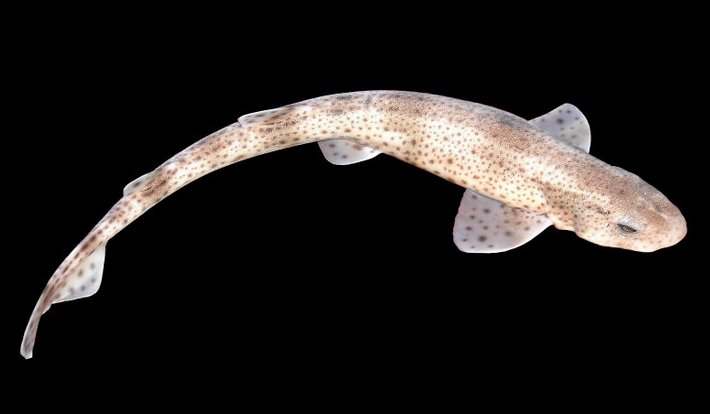
Mago. Spotted dogfish, small
shark. Vanaga. Mogo, shark. P Pau.: mago,
id. Mgv. mago, id. Mq. mano, mako, mono,
moko id. T. maó, id. In addition to this
list the word is found as mago in Samoa,
Maori, Niuē, and in
Viti as mego.
It is only in Rapanui and the Marquesas that we
encounter the variant mogo.
Churchill.

...
Maui
at first assumed the form of a kiore, or rat,
to enter the body of Hine. But tataeko,
the little whitehead, said he would never succeed in
that form. So he took the form of a toke, or
earth-worm. But tiwaiwaka the fantail, who
did not like worms, was against this. So Maui
turned himself into a moko huruhuru, a kind
of caterpillar that glistens. It was agreed that
this looked best, and so Maui started forth,
with comical movements ... |
|
7 he teatea. |
8 he ngu haha tea. |
9 he mango. |
10 he hahara rapanui
|
1 he ti. |
|
... When this
tremendous task had been accomplished Atea
took a third husband, Fa'a-hotu, Make
Fruitful. Then occurred a curious event. Whether
Atea had wearied of bringing forth offspring we
are not told, but certain it is that Atea and
her husband Fa'a-hotu exchanged sexes. Then
the eyes of Atea glanced down at those of his
wife Hotu and they begat Ru. It was
this Ru who explored the whole earth and
divided it into north, south, east, and west
...
Haha. 1. Mouth (oral cavity,
as opposed to gutu, lips). 2. To carry
piggy-back. He haha te poki i toona matu'a,
the child took his father on his back. Ka haha
mai, get onto my back (so I may carry you).
Vanaga. 1. To grope, to feel one's way; po haha,
darkness, obscure. 2. Mouth, chops, door, entrance,
window; haha pipi, small mouth; haha
pipiro, foul breath; ohio haha, bit of
bridle; tiaki haha, porter, doorkeeper.
Churchill. Hahaga. Ridge, summit, wall plate.
Maroa hahaga, to measure lands, to walk at a
great pace. Churchill.
Hara. Harahara 1. Misaligned
(of roofing, basketware, etc.); e harahara nó te
kete, the basket is misaligned (its strips are
not parallel. 2. A sort of taro. 3. Latrine,
defecating ground. Vanaga. 1. Pandanus. P Mgv.:
ara, puhara, pandanus (tree); hara,
a bunch of pandanus fruit, old pandanus. Mq.: faá
haá, pandanus. Ta.: fara, id. 2. Error,
mistake, oversight, wrong; to err, to confound, to
mistake; manau hara, illusion; toua hara,
discussion without knowing the object. P Mgv.:
ara, arara, defective, abortive, to miss,
to fail, a fault, a quarrel; hara, a fault, a
mistake, an error, a dispute, a quarrel,
undisciplined. Mq.: hara, a rake, libertine.
Ta.: hara, sin, fault, crime. Churchill. |
|
APRIL 1 (59 + 32) |
2 |
3 (*13) |
4 |
5 (95) |
 |
 |
 |
 |
 |
|
Ga1-11 |
Ga1-12 |
Ga1-13 |
Ga1-14 |
Ga1-15 |
|
HAEDUS II
= η Aurigae
(75.9) |
5h (76.1)
ε
Leporis (76.0),
CURSA
(Footstool)
=
β
Eridani
(76.4),
λ
Eridani (76.7)
*35.0 = *76.4 - *41.4 |
μ
Aurigae, μ Leporis (77.6) |
ĸ Leporis (78.0),
RIGEL
(Foot)
=
β
Orionis
(78.1),
Flaming Star = IC405
(78.2),
CAPELLA
=
α
Aurigae
(78.4),
ο
Columbae,
τ
Orionis (78.8)
*37.0
= *78.4 - *41.4
THUBAN (α
Draconis)
|
λ Aurigae (79.0), λ Leporis (79.6), ρ Aurigae (79.7)
ARCTURUS (α
Bootis) |
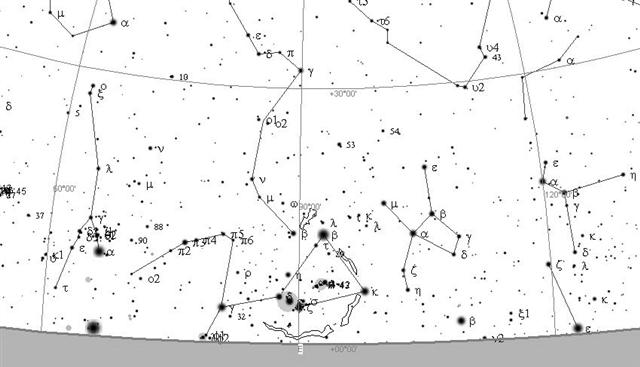
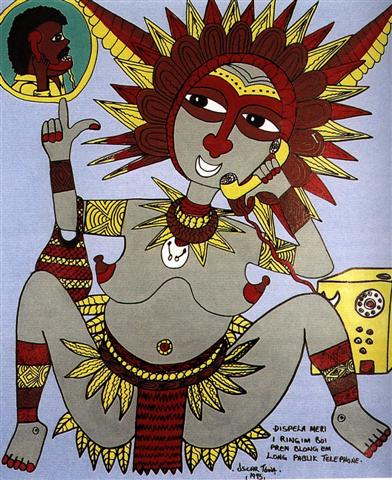
|
 |
 |
|
hanau |
RIGEL & CAPELLA
|
Hanau. 1. Race, ethnic group.
Hanau eepe, the thick-set race; hanau
momoko, the slender race (these terms were
mistranslated as 'long-ears' and 'short-ears'). 2.
To be born. Hanau tama, pregnant woman;
vî'e hanau poki, midwive (also: vî'e hakaa'u).
Vanaga. To be born; vie hanau, midwife. P
Pau.: fanauga, child, descendant, progeny.
Mgv.: hanau, to be born, to be brought into
the world. Mq.: fanau, hanau, to be
born, to lie in, to bring into the world. Ta.:
fanau, to be born, to lie in. Churchill. |
|
June 4 |
5 |
6 (157 = 314 / 2) |
7 (94 + 64) |
8 (*444) |
|
°May 31 (151) |
°June 1 |
2 (*73) |
3 (94
+ 60) |
4 (*440) |
|
'May 8 (128) |
9 |
10 (*50) |
11
(94 + 37) |
12 (*52) |
|
"April 24 (114) |
Vaitu Nui 25 (*35) |
26 (4 * 29) |
27 (94 + 23) |
28 (118 = 4 * 29) |
|
... The Explorers had left their
old homeland in "April 25 (115) - implying the
synodic cycle of Mercury - and they
had returned half a year later,
in "October 25 (298 = 115 + 183), which was 10 days
after the arrival of the Royal Double Canoe ...
... Ganz
ähnlich is der Name 'Gott von Duazag' des
Gottes Nabū ... zu erklären.
Er bezeichnet ihn als den Gott
des Wachtstums, welches als aus dem Osten stammend
betrachtet wird, weil die Sonne, die das Wachstum
bringt, im Osten aufgeht. Dass aber Nabū
als Ost-Gott aufgefasst wurde, hängt damit zusammen,
dass sein Stern, der Mercur, nur im Osten oder
Westen sichtbar ist ...
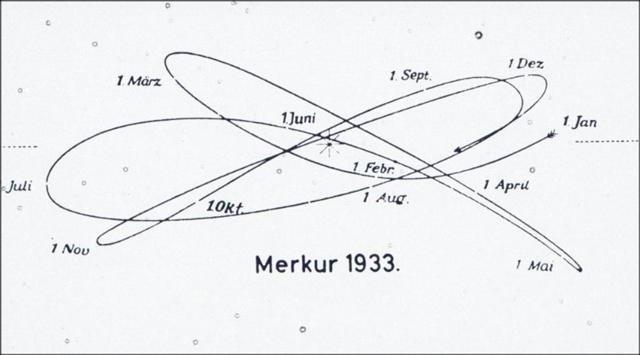
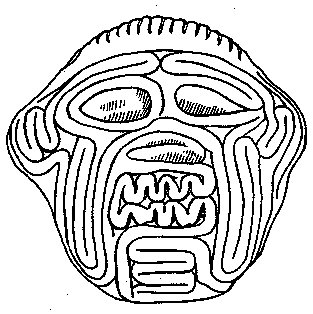 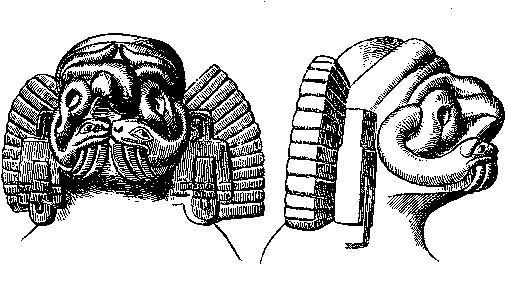
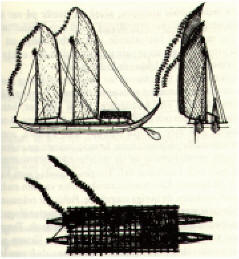 |
|
CLOSE TO THE FULL
MOON: |
|
OCT 1
(91 + 183) |
2
(275) |
3 |
4 |
5 |
|
17h
(258.7)
ARRAKIS = μ Draconis
(258.7) |
Mula-19 (The Root)
SABIK (The Preceding One)
=
η
Ophiuchi
(259.7),
η
Scorpii (259.9) |
NODUS I =
ζ
Draconis
(260.0),
π
Herculis (260.7),
RAS ALGETHI (Head of the Giant)
=
α
Herculis
(260.8) |
SARIN =
δ
Herculis
(261.0),
ο
Ophiuchi (261.4)
*220.0 = *261.4 - *41.4
ALRISHA (α
Piscium) |
ξ Ophiuchi (262.2), θ Ophiuchi, ν Serpentis, ζ, ι
Apodis (262.4), ι Arae (262.8), ρ Herculis (262.9)
*221.0 = *262.4 - *41.4 |
|
Dec 4 |
5 |
6 (*260) |
7 |
8 (342) |
|
°Nov
30 |
°Dec 1
(335) |
*(8 *
32) |
3 |
4
|
|
'Nov 7 |
8
(*232) |
9 |
10
(314) |
11 |
|
"Oct
24 |
Tangaroa Uri 25 |
26 |
27
(300) |
28 |
|
...
Page E:86 tells about Makoi being left behind
on Easter Island when the remaining 5 Explorers
sailed home to Hiva. From there (Tangaroa
Uri 25) to the day when Hotu became
worried about where Oto Uta was, i.e. in
Tangaroa Uri 30, there were 5 days:
|
April 25 (115) |
5 + 56 |
June 25 (176) |
5 + 116 |
Oct 25 (298) |
5 + 56 |
Dec 25 (359) |
5 + 116 |
|
61 |
2 * 61 |
61 |
2 * 61 |
|
183 |
183 |
|
366 = 2 * 183 = 6 * 61 |
And
from the autumn equinox (265) at Antares to the
Sting of the Scorpion (υ
Scorpii) there were 15 days
...
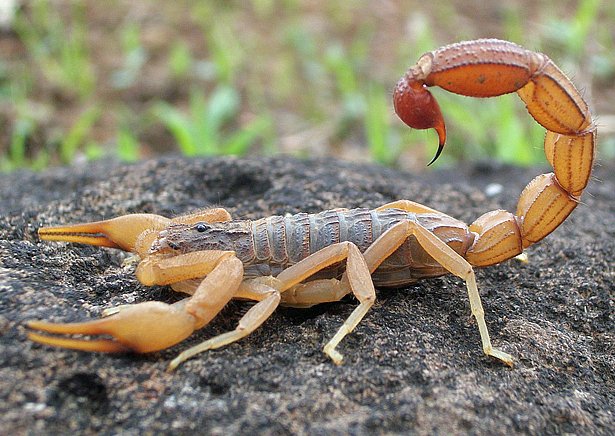
... the tubers [of kape]
had to be kept in the earth-oven for 15 (sic)
days in order to eliminate some of the poisonous
components ... 2 *
175 (Day of St John) = 350 = 365 - 15.
... Thus the regular
old Roman year ended with Februarius 23 and it was
350 nights long, 25 fortnights ... |
There was a correspondence between no glyph at Hyadum II and
no
eyes at Haedus II.
|
MARCH 21 (80) |
10 |
APRIL 1 (91) |
|
no glyph |
 |
|
HYADUM II |
HAEDUS II
|
This correspondence becomes quite clear when we consider the
fact that Hyadum II was followed by the Eye (Ain, ε Tauri)
and Haedus II by signs of rebirth (hanau).
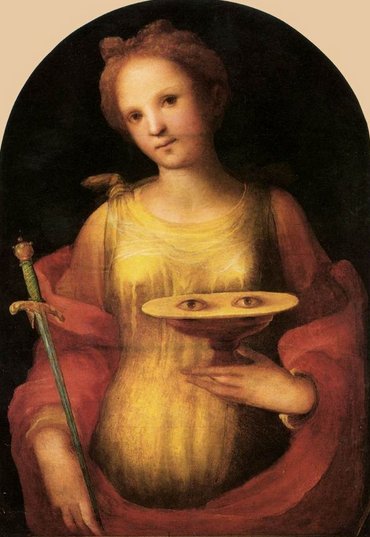
Fertility was secured by the dead rulers:
... Up to the present time, fertility
spells for fowls have played an important role. Especially
effective were the so-called 'chicken skulls' (puoko moa)
- that is, the skulls of dead chiefs, often marked by
incisions, that were considered a source of mana.
Their task is explained as follows: 'The skulls of the
chiefs are for the chicken, so that thousands may be born' (te
puoko ariki mo te moa, mo topa o te piere) ... As long
as the source of mana is kept in the house, the hens are
impregnated (he rei te moa i te uha), they lay eggs (he
ne'ine'i te uha i te mamari), and the chicks are hatched
(he topa te maanga). After a period of time, the
beneficial skull has to be removed, because otherwise the
hens become exhausted from laying eggs ...
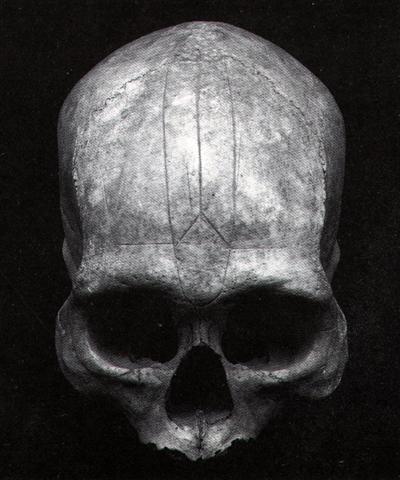
|













